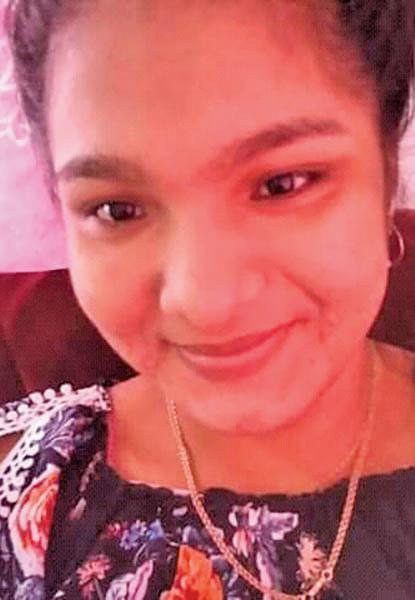
8 minute read
1 6/8 x 8 1/2
4FRIDAY, SEPTEMBER 11, 2020 Views
Editor: Tusika Martin News Hotline: 231-8063 Editorial: 231-0544, 223-7230, 223-7231, 225-7761 Marketing: 231-8064 Accounts: 225-6707 Mailing address: Queens Atlantic Investment Estate Industrial Site, Ruimveldt, Georgetown Email: news@guyanatimesgy.com, marketing@guyanatimesgy.com
Irresponsible words
The decision by President Dr Irfaan Ali to seek assistance from the British Government and Regional Security System support of the Guyana Police Force’s investigative capacity is a welcome move.
What started out as a protest for justice for teen cousins: 16-year-old Isaiah Henry and 19-year-old Joel Henry, who were brutally murdered by barbaric criminals, quickly descended in a full-blown criminal enterprise. How does robbing, beating, extorting and destroying people’s property constitute, by any stretch of the imagination, justice for these boys?
It is no secret that the entire unfortunate episode along the West Coast of Berbice started after very irresponsible words were uttered by two Opposition politicians to residents of Number 3 Village following the boys’ deaths.
It is obvious that the cruel manner in which the boys were murdered would have sparked widespread public outrage, and both these politicians used that as an opportune moment to gain political mileage, causing Guyana to plunge into its worst racial unrest in years.
One is on record as saying, without evidence, “Too many Black youths are vanishing in the same way that cousins Isaiah and Joel Henry were killed and mutilated.” The other irresponsibly told the grieving community, “If the Government cannot protect us, then we must protect ourselves.”
Since inciting the violence along the West Coast of Berbice, Guyanese have yet to hear one word of condemnation from these very two politicians. Their surrogates are using social media to spew the same sentiments that have caused the already enflamed situation to worsen.
It was United Nations Secretary-General António Guterres who, while speaking on the issue of discrimination and hate speech, said that social media and other forms of communication are being exploited as platforms for bigotry. Public discourse is being weaponised for political gain with incendiary rhetoric that stigmatises and dehumanises.
Hate speech, Guterres said, is a menace to democratic values, social stability and peace. To quote the SG: “As a matter of principle, the United Nations must confront hate speech at every turn.”
It is therefore commendable that the President of Guyana has asked Attorney General and Legal Affairs Minister Anil Nandlall to explore, within the United Nations’ system, all means available to hold to account all those who spread race hate and instigate racial strife.
Silence, like Guterres said, can signal indifference to bigotry and intolerance. Therefore, not getting to the bottom of what occurred along the WCB, and who instigated the violence to escalate, is setting a dangerous precedent. As we have seen over the past week, such incitement led to hostility, violence, racial profiling and discrimination.
On December 11, 1968, Guyana singed on to the International Convention on the Elimination of All Forms of Racial Discrimination, and on February 15, 1977, it was ratified. Being a signatory to the resolution, we must stand and enforce the principles to which we agreed. Like many other countries, Guyana has adopted, and signed on to the UN commitment to adopt, a common understanding of the root causes and drivers of hate and inciting speech, in order to take relevant action.
Likewise, the Ethnic Relations Commission (ERC) should investigate inciteful statements made to WCB residents. Certainly, those irresponsible politicians cannot be innocent parties to such hate statements that have led this country into unrest.
This publication supports President Ali’s decision to leave no stone unturned in this matter, and to use all available tools not only to solve the murders, but also to get a comprehensive and holistic picture of all the events surrounding what took place thereafter. It is Michelle Bachelet who told the United Nations Human Rights Council recently, “Like COVID-19, racism and xenophobia are contagious killers.”
A Martian city? The San Francisco Bay Bridge and city skyline are obscured in orange smoke and haze as seen from Treasure Island in San Francisco, California, September 9, 2020

Planting social discord

Dear Editor,
What I see on videos and read about as occurred in West Berbice brings back horrific memories of some politicians from yesteryear sowing social discord. They are concerned about their own political future, rather than the future of the nation. In political science, we call them political entrepreneurs, or mercenaries, or opportunists. They would sacrifice the lives of the innocents for their own political fortune.
It is pleasing that the father of one boy dissociates from the planned violence of political entrepreneurs.
I am a child of the 1960s of Port Mourant (PM), an Indian village, or sugar estate, for lack of a better term. I was too young to remember the racial riots of the early 1960s. I was told inter-relations were very tense.
I do recall matters pertaining to Independence, when we were given pencil or pen in school, and someone from the Royal Family of England visited around that time. And I do remember the 1968 election rigging. But there was no violence, Indians and Africans lived well, working with, and helping each other. There would be sharp oral exchanges, especially on politics, but no physical violence.
On the whole, inter-race relations were relatively good on the Corentyne after Independence, except for rare, isolated incidents in a few villages occupied by one group or the other. There were no hostilities, from what I could remember.
For example, AfroGuyanese persons from Rose Hall used to come to visit, play cricket, attend weddings, stage masquerade dances during the endof-year activities in PM; work on sugar and rice, and engage in other activities.
Afro-Guyanese cricketers from Manchester, or Auchlyne, or Fyrish used to come to play in PM without having to worry about their safety; no one troubled them, and same vice versa!
The two groups shared space at the market and at entertainment centres or fast food outlets in neighbouring Rose Hall. Africans shopped at Indian groceries and cake shops. In school, children got along well. At English school, where I attended, African and Indian children got along well, playing games and competing for highest scores in exams and at Common Entrance (CE).
Africans went to Indianowned high schools: Comprehensive, Nath, Khesrilall, and Corentyne (Chandisingh) High, which I attended and which was the creme de la crème of Berbice. Fees and entrance standards were higher at CHS than at other schools.
Although I passed CE in 1972 to attend Berbice High, the school for the elite and a privilege to attend in New Amsterdam, my father insisted I attend Chandisingh, which had its own entrance exam and higher reputation. Khemraj Ramjattan was in the same class with me in 4A and 5 A. Two females and I were always in competition for top three places in end-of- term reports in forms 4 and 5.
There were several African students and African teachers at CHS and at other Indian-owned schools. Students played and studied together, there was no discrimination; we did not know anything about racism until National Service was introduced, and later, when education was nationalised by the Burnham dictatorship, pitting Africans against Indians. Indians wanted nothing to do with the dreaded National Service and control of the educational curriculum, which was more propaganda than knowledge- based. In schools, at snack bars nearby, and at the vendors in front of the schools, and on excursions (outings to other schools or industries), Indians and Africans socialised. Also, Indians shared meals with their friends.
There was mutual respect between the two communities, and they depended on each other for services. I remember my father and others hiring African workers to mill rice, and even to cut cane. They treated their African workers well, even preparing lunch for them. The Africans learnt Indian culture, and patronised Indian religious and cultural events and spiritual festivities (weddings, Jhandis, Koran Shariefs, Christian Home Service, etc.) and even mandirs. Some Indians patronised African churches.
Then the dreaded politicians, entrepreneurs, came to sow social discord among the people, placing a wedge where there was healing between the two groups, and making matters worse by election-rigging; banning of basic foods consumed by Indians; making National Service mandatory; introducing choke-and-rob and kick-down-the-door banditry; racism, and the like.
There was healing between 1992 and 2015. We seemed to have overcome some divisions in 2015 when Indians crossed over to vote for change. But regrettably, racism raised its ugly head again. And then race relations worsened with the attempt to rig the March 2020 elections.
The politically-directed violence of the last week is directly related to that electoral outcome, as some politicians were not fearful of stating as much, making reference to “political fraud and repression”. The international community disagrees with those remarks, rating the outcome free and fair and representative of the will of voters.
The murders of the two African youths had nothing to do with politics or repression of Africans. The murder of the Indian teenager had everything to do with politics; it was a response to the other murders, and it was encouraged. This would worsen race relations, courtesy of those politicians.
What one of the Henry boys’ father stated is correct about race relations. He said Indians and Africans got along well in the neighbouring Indian villages in West Berbice. Africans attended Indian community events. The men drank and socialised, playing cards and dominoes. And the outsiders came to sow discord.
Henry socialises with Indians, who call him “gheera head” because his hair looks like gheera, which is used to ‘chowkay’ dhal when it is finished cooking. Henry clearly regrets violence committed in the name of his son, and made it clear that politics had nothing to do with the murder of his son. Henry is applauded for his conciliatory and truthful words.
Volda Lawrence also took the high road in this violent encounter. She did not call for, or support, or encourage, violence in appealing to Africans to stop the attacks. She came across as a real leader and a healer.



